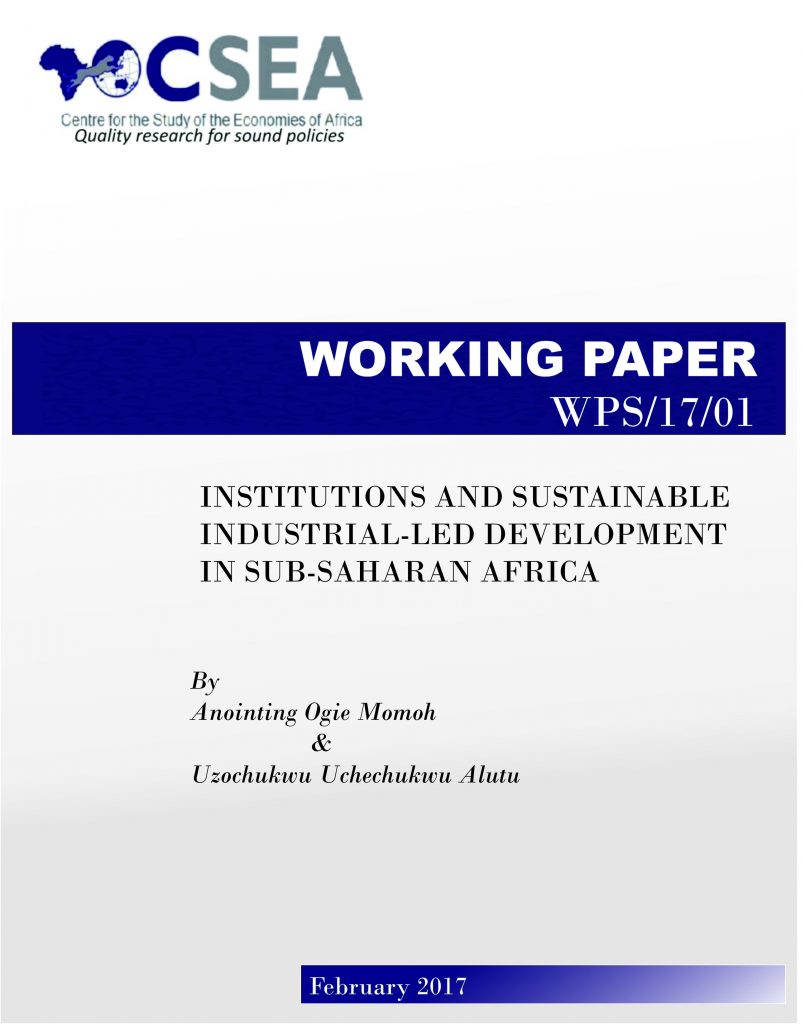Publications

June 26, 2017
Institutions And Sustainable Industrial-led Development In Sub-Saharan Africa
In 2015, economic growth in Sub-Saharan Africa
(SSA) slowed to 3.4 percent from 4.6 percent the previous year. The economic
slowdown in the region was the result of an interplay of several external and
domestic factors such as lower commodity prices, slowdown in the economies of
major trading partners, tightening borrowing conditions, political instability
and conflict, electricity shortages and other infrastructure deficiencies (World Bank, 2016). This sluggish
growth trends is in contrast to the impressive growth recorded in the region,
over the past decade.
